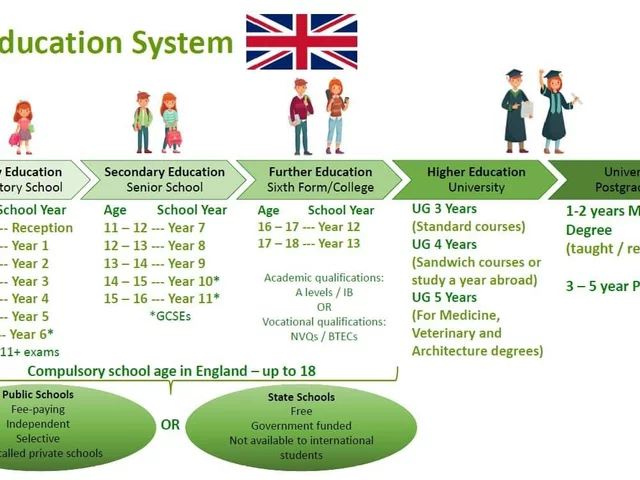Examining the Need for Skills-Based Education in the Modern Job Market
In today's job market, employers are increasingly looking for individuals with specific skills that can be applied to their roles. Unfortunately, many college and university degrees are not providing these skills. Rather, these degrees are more focused on providing a general education, which does not necessarily prepare graduates for the specific tasks and responsibilities required in their chosen field.This is why skills-based education is becoming increasingly important in the modern job market. Rather than focusing on a general education, skills-based education focuses on teaching students the skills they will need to succeed in their chosen field. This includes not only technical skills, but also communication, organizational, and problem-solving skills.
Skills-based education has the potential to provide students with the knowledge and skills they will need to succeed in their chosen career. It also helps ensure that graduates have a greater chance of being successful in their chosen field. This is especially important in fields that require specialized knowledge and skills, such as technology, engineering, and healthcare.
In order to ensure that students are receiving the skills they need to succeed in the modern job market, it is important for educational institutions to incorporate skills-based education into their curriculums. This will provide students with the skills they need to be successful in their chosen field and help ensure that graduates are well-equipped for the modern job market.
How to Transform the Education System to Focus on Skills Acquisition
The modern world is changing faster than ever before and students require more than just a degree to be successful. Traditional education systems are struggling to keep up with the demands of the modern workplace and often fail to equip students with the skills they need to thrive in the workplace. Fortunately, there are steps that can be taken to transform the education system to focus on skills acquisition.One way to transform the education system to focus on skills acquisition is to design curricula and assessment methods that emphasize practical application and problem-solving. Instead of relying solely on theoretical knowledge, students should be encouraged to apply what they learn to real-world scenarios. This could include simulations, internships, and projects that require students to think critically and apply their knowledge to solve problems.
Another way to transform the education system is to incorporate the use of technology in the classroom. Technology can provide students with a more personalized learning experience and allow them to access resources and materials quickly and easily. Technology can also help teachers to easily track student progress and provide feedback in a timely manner.
Finally, schools should focus on providing students with career-oriented skills training. This could include teaching them how to develop a resume and cover letter, how to network, and how to interview for a job. Schools should also provide resources and support for students who want to pursue internships or apprenticeships.
By implementing these changes, the education system can become more focused on providing students with the skills they need to be successful in the modern workplace. With the right skills, students will be better prepared to face the challenges of the future.
Analyzing the Impact of Degrees on Job Performance
The education system is often criticized for providing students with degrees, not skills. The argument is that a degree does not guarantee a student the skills needed to be successful in the job market. This can lead to a lack of job performance, as those with a degree may lack the necessary skills to perform the job.To analyze the impact of degrees on job performance, it is important to consider the type of degree. Those with degrees in fields such as engineering, healthcare, and technology may have an advantage in the job market due to their specialized skills and knowledge. However, those with degrees in other areas may not have the same advantage. For example, those with a degree in English literature may not possess the same skills and knowledge as those with a degree in engineering.
It is also important to consider the quality of the degree. Degrees from reputable universities may give students an advantage in the job market, as employers may be more likely to trust the quality of the degree. On the other hand, degrees from less reputable universities may be viewed with suspicion, leading to a lack of job performance.
Finally, it is important to consider the job market. In a competitive market, employers may be more likely to prioritize those with degrees from top universities. This could lead to a lack of job performance for those with degrees from lesser known universities.
In conclusion, the education system does provide students with degrees, not skills. However, the type of degree, the quality of the degree, and the job market can all play a role in determining job performance. Those with degrees from reputable universities and specialized fields may have an advantage in the job market, while those with degrees from lesser known universities may struggle to perform.
Exploring the Benefits of Investing in Skills-Based Education and Training
The education system has traditionally been focused on providing degrees, rather than teaching the practical skills and knowledge that employers need. As a result, many graduates are not adequately equipped to take on the challenges of the modern workforce. This is why there is an increasing focus on investing in skills-based education and training.Skills-based education and training focuses on providing students with the skills and knowledge they need to be successful in the workplace. This type of training can be tailored to the specific needs of employers, ensuring that graduates possess the skills that are most relevant to their industry. Additionally, skills-based education and training can be used to develop the skills of existing employees, enabling them to stay up-to-date with the latest industry trends and techniques.
Investing in skills-based education and training also offers a range of other benefits. For example, it can help to reduce staff turnover rates, as employees who feel that their skills are being invested in are more likely to stay with the company. Additionally, it can help to reduce the cost of recruitment and training, as employers can invest in their existing staff, rather than having to recruit and train new employees.
Overall, investing in skills-based education and training is a great way to ensure that graduates and employees have the skills and knowledge they need to succeed in the workplace. Not only does it provide employers with a more qualified and competent workforce, but it also offers a range of other benefits, such as reduced staff turnover and cost savings. As a result, it is an investment worth considering.


